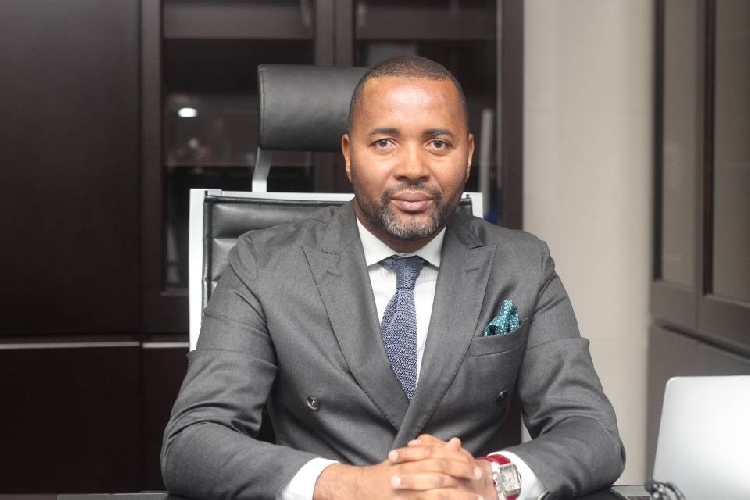Presidential press secretary Alfredo Hengari said the president Hage Geingob cannot just wake up one morning and cancel tenders that have already been awarded.
“That’s not how the country is run. What type of country would we be?”
This come after the Construction Industries Federation (CIF) and the Metal and Allied Namibian Workers Union (Manwu) have appealed to Geingob to cancel all projects that exclude local contractors and have them re-advertised.
The CIF and Manwu say the projects exclude majority-Namibian-owned contractors, mainly due to steep financial prequalification or qualification requirements and were, therefore, not in the interest of the sector as they undermined its optimal performance.
The construction sector has been in the doldrums for a number of years due to the drying up of government jobs on which many of them relied.
The two organisations called on the president to cancel the tenders and have the financial and technical criteria reviewed, and then subsequently be re-advertised, into smaller lots, with more realistic technical criteria.
Hengari said Namibia is governed by the rule of law and it has institutions that people can go to in the event they are not satisfied with an award of tenders.
“They can approach the tender board or appeal to the courts but not to expect the president to cancel tenders when we have institutions to do that,” he said.
The projects that the CIF and Manwu want cancelled include the Roads Authority project for the rehabilitation of the 30-kilometre road between Karibib and Usakos; NamWater water treatment plants at Oshakati and Rundu, and the Ohangwena plant and water supply system.
The others are the Namfisa head office and NamPower’s 70MW project at Rosh Pinah; and the classrooms and ablution facilities tender awarded to August 26/Ministry of Defence and Veterans’ Affairs by the Ministry of Education, Arts and Culture.
The CIF and Manwu said if finances for the projects are external grants or loans, they should be on terms that support the development and the further capacitation of Namibian businesses, otherwise they are not sustainable.
CIF chief executive Bärbel Kirchner said: “All the developments are extremely disappointing and undermine Namibia’s own contractors.”
Kirchner said Namibian contractors and professionals in the construction sector are in desperate need of work and there seems to be no understanding and no deliberate attempt to optimally support the local industry.
“This not only includes majority Namibian-owned small and medium enterprises but also majority Namibian-owned mid-size contractors and majority Namibian-owned large size contractors.
“On the contrary, it appears our own contractors, in particular the large-size contractors, are deliberately undermined. This can bring about the insolvency and eventually bankruptcy of our established and well capacitated contractors,” Kirchner said.
Manwu secretary general Justina Jones said: “Our government and all state organs are the biggest employers for the construction industry; and it must be the state’s priority to ensure that local contractors, especially those with equal capacity as foreigner contractors, are exempted from tender requirements and are awarded the mega projects.
“At the moment, the private sector is leading by example to ensure that the big local contractors are awarded jobs,” she said.
Jones said foreign contractors must be the sub-contractors for local contractors, not be the other way around, adding that foreigner contractors are diminishing the precarious employment opportunities in the sector, reducing it to an industry with no decent jobs and no social protection.
CIF and Manwu also called for the establishment of the National Construction Council to regulate the sector and rid it of tenderpreneurs “who are messing things up and are not being held accountable”.
NamWater chief executive Abraham Nehemia dismissed claims by CIF and Manwu, saying no one has been left out.
“These tenders are awarded according to one’s capacity to do them. You cannot say because you have done a N$3 million project you are able to do a N$300 million one,” he said.
He said stakeholders in the construction industries had been told to to set up joint ventures with those who have capacity for them to bid for these huge tenders “but they want everything for themselves”.
He said the call to cancel the tenders was not realistic because they had been awarded and people want water urgently.
“They want whatever profits they can make and do not care about people’s need for water. These are AfDB funded projects and we have to follow AfDB rules in awarding the tenders,” he said.
NamPower chief executive Simson Haulofu said the 70MW plant complained about is a billion-dollar project for which bidders must have capacity to carry a project of that magnitude.
According to Haulofu, the Procurement Act indicates that such a project is open to international bidders and local construction companies that have built smaller project must use that experience to look for companies with capacity and form joint ventures.
– email: matthew@namibian.com.na
Stay informed with The Namibian – your source for credible journalism. Get in-depth reporting and opinions for
only N$85 a month. Invest in journalism, invest in democracy –
Subscribe Now!






